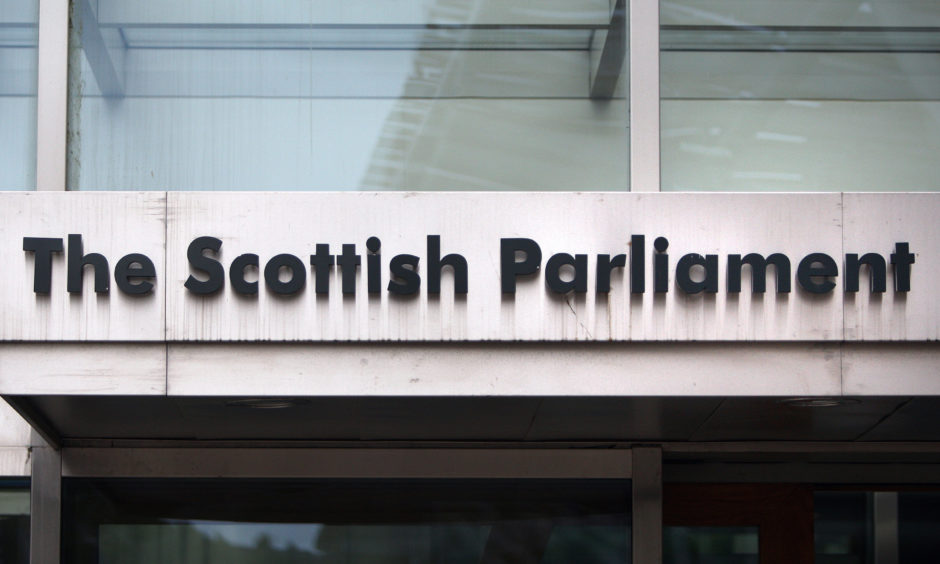The most senior civil servant in Alex Salmond’s government has revealed he dealt informally with concerns about ministers’ behaviour on a number of occasions.
Sir Peter Housden, who was Scotland’s permanent secretary from 2010 to 2015, made the disclosure in a document submitted to MSPs but said “confidentiality requirements” prevented him from giving any more detail.
The revelation was described as “an extraordinary admission” by opposition politicians, who renewed their calls for Nicola Sturgeon to tell Holyrood what she knew about the situation.
Sir Peter’s submission was published alongside one from another former permanent secretary, Sir John Elvidge, who suggested civil servants might have been reluctant to make formal complaints because of a view that “aggressive behaviour” by ministers was required to make progress.
The documents, which mention no ministers by name, were submitted to the Holyrood committee investigating the Scottish Government’s botched handling of harassment claims made against Mr Salmond.
Looking back at his time in charge of the Scottish civil service, Sir Peter said when there were individual ministers whose behaviour was a cause for concern “the expectation” was that he would manage those situations “without recourse to formal procedures”.
He added: “Confidentiality requirements preclude me from sharing the particulars my experience (sic) but I took actions on these lines in a number of settings.”
A submission to the Salmond inquiry committee from Sir Peter Housden, Leslie Evans' predecessor as Permanent Secretary (from 2010 to 2015). He "took action" over concerns about the behaviour of ministers "in a number of settings", but seemingly isn't allowed to share any details pic.twitter.com/nku6ivammT
— Philip Sim (@BBCPhilipSim) August 27, 2020
Formal action, Sir Peter said, would only be taken if a complaint was made or there was evidence that there had been serious misbehaviour.
“The limiting cases were, of course, situations where a formal complaint was brought against a Minister, and/or there was presenting evidence that an egregious act had been committed. In these cases, formal procedures would be followed,” Sir Peter’s document said.
The submission was made to the Holyrood committee investigating how the Scottish Government handled harassment claims made against Mr Salmond, dating from when he was first minister.
The Holyrood inquiry was launched after Mr Salmond took a successful civil court action against the Government that found its internal investigation into the claims made against the former first minister was unlawful and tainted with apparent bias.
The Scottish Government ended up paying out more than £500,000 to meet Mr Salmond’s legal costs.
We have no idea how many times these informal discussions took place, who with or, most importantly, how serious the complaints were.”
Murdo Fraser MSP
Committee member Murdo Fraser said: “It is an extraordinary admission that problematic behaviour from ministers would be dealt with informally, and that these procedures took place ‘in a number of settings.’
“We have no idea how many times these informal discussions took place, who with or, most importantly, how serious the complaints were.
“But it’s clear that Nicola Sturgeon’s position that she knew nothing about any allegations of inappropriate behaviour is becoming flimsier with every piece of evidence that comes out.
“The First Minister cannot claim to have been in the dark, like the rest of us, when a number of allegations and complaints were taking place along the corridors of the SNP government.”
Mr Fraser added: “The inquiry must hear from Nicola Sturgeon about what she knew and when she knew it.”
Fellow committee member Alex Cole-Hamilton of the Lib Dems said: “The former permanent secretary’s candour in this letter is a welcome departure from the grey wall of silence we have had so far from other civil servants. He clearly has an important story to tell in terms of how things were dealt with before the procedure was introduced. I look forward to his appearance at the committee.”
Consequently, some civil servants tended not to interpret as bullying any behaviours which they saw as a response to that stress, if an individual Minister did not display those behaviours at other times.”
Former permanent secretary Sir John Elvidge
Sir John Elvidge’s submission to the committee gave an insight into the working culture between ministers and civil servants.
Sir John led the Scottish civil service between 1999 and 2010, a period that also overlapped with Mr Salmond’s tenure as first minister from 2007 to 2014.
He said civil servants working closely with ministers developed “an empathetic understanding of the stresses” felt by the politicians.
“Consequently, some civil servants tended not to interpret as bullying any behaviours which they saw as a response to that stress, if an individual Minister did not display those behaviours at other times,” Sir John said.
“In combination with the strong cultural understanding that civil servants should exercise restraint in responding to personal criticism by Ministers, this tended to have the effect that Ministers did not experience the kind of feedback about their behaviours which might occur in other working environments.”
Sir John also suggested a prevailing view that ministers needed to be aggressive in order to make progress, which may have discouraged civil servants from complaining about their behaviour.
“I observe that there is a wider context, in which both political and media attitudes have been known to produce expressions of encouragement and support for ministers about whom rumours of behaviour towards civil servants which could be considered as bullying have entered the public domain,” Sir John said.

“Although these occurrences may be the exception rather than the rule, this may have led civil servants to feel that complaints of bullying might be the subject of hostile comment suggesting that aggressive behaviour by Ministers was necessary to secure progress.
“While my experience has not been that this led civil servants to withhold concerns from their colleagues and immediate managers, it may well have affected their readiness to make formal complaints, even where their managers sought to reassure them that such complaints would be handled in a way which sought to protect complainants and to avoid repetition of unacceptable behaviour.”

